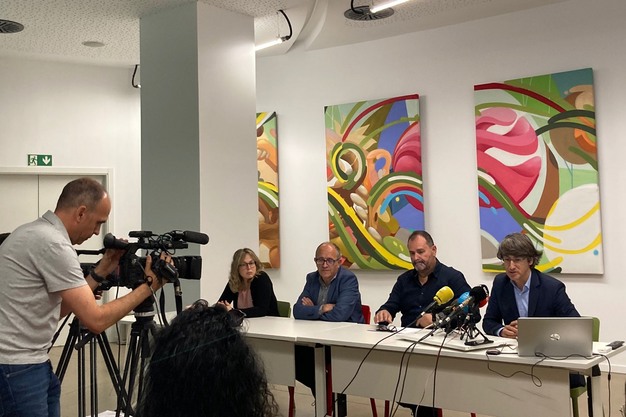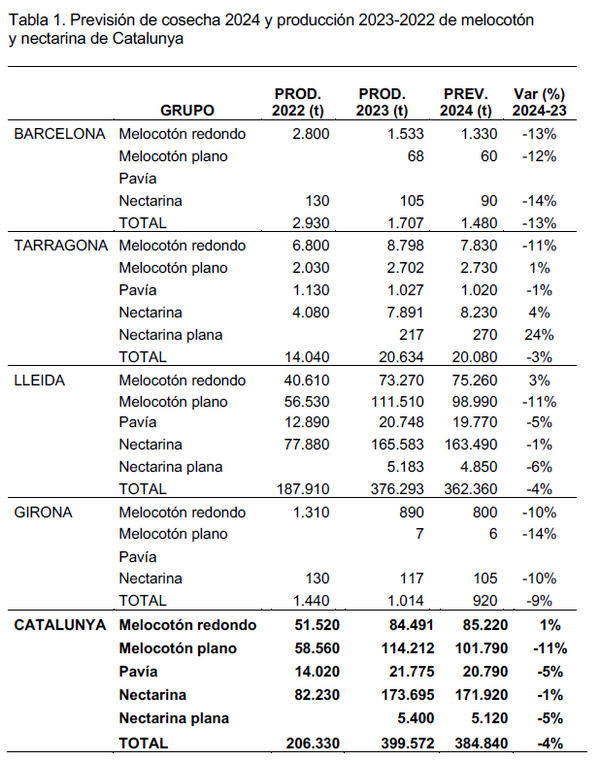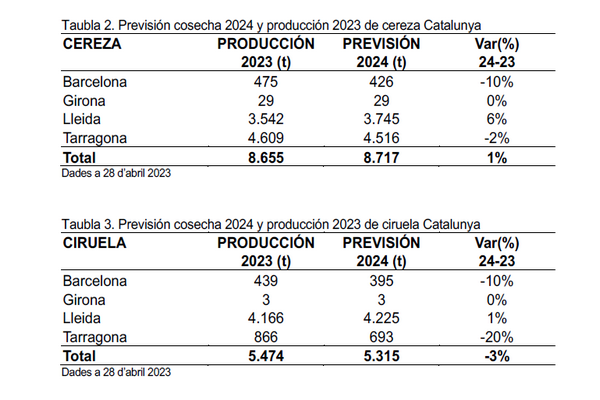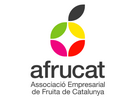According to data presented recently by the Fruit Business Association of Catalonia (Afrucat) and the Department of Climate Action, Food and Rural Agenda (DACC), the Catalan productive potential for peaches and nectarines is down by 4% compared to the previous campaign, with the forecast to reach 384,840 tons.
By provinces, Lleida expects to harvest 4% less peaches and nectarines (362,360 tons); Tarragona, 3% less (20,080 tons); Barcelona, 13% less (1,480 tons), and Girona, 9% less (920 tons).

The most outstanding drops in the production are expected for Barcelona and Girona, with 13% and 9%, respectively. They will obtain 1,480 tons and 920 tons. In both cases, one of the main causes is the uprootings (more significant in the province of Girona), while in Barcelona, periods of drought in the previous campaign and also this year have taken their toll. It's worth noting that many of the plantations in Barcelona are in rainfed areas and basically depend on rainfall.
After years of very low productions (2020, 2021 and 2022) and weather adversities (especially frosts, hailstorms and severe drought), Catalonia recovered its productive potential last campaign, but this year, as a consequence of the water stress suffered by the trees and high temperatures, it is again down by 4%.

"The campaign has already started, and the fact that Murcia has arrived early this year, while we are on schedule, is allowing the productions not to overlap and for sales in the market to remain smooth. A normal year like this could be considered exceptional," says Benjamí Ibars, president of the Afrucat Stone Fruit Committee.
Joan Gòdia, general director of Agri-food Companies, Quality and Gastronomy of the Department of Climate Action, Food and Rural Agenda, says that "after many years with weather phenomena such as hailstorms, frosts or last year's drought, we are having a normal year, coming close to our productive potential and not lacking water."

Manel Simon, general director of Afrucat, says: "Everything points to this being a good campaign and we expect to be able to manage our production well. Still, we can also not forget that for everything to go well, it needs to be hot in summer. As we all know, the consumption of juicy fruits is linked to high summer temperatures."
Simon made a point about the uncertainty of the impact of pests on the production. "Last year there was a significant impact of thrips and fruit flies. Thus, although prices were acceptable, many plantations had lower yields. Now that the European elections are approaching, we wished to insist on our request to Brussels, and specifically to the EFSA (European Food Safety Authority), about the need to carry out impact studies before banning any new control methods, in order to find out if there are any alternative treatments, or the suspension can entail the abandonment of one or more crops across Europe. At a time when self-sufficiency in the food supply is so important, we cannot afford to lose crops in Europe because of a lack of protection methods."
 For more information:
For more information:
Afrucat
www.afrucat.com










